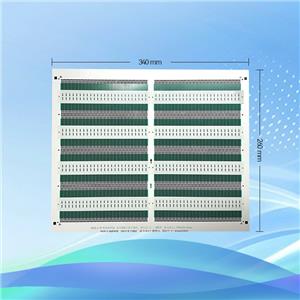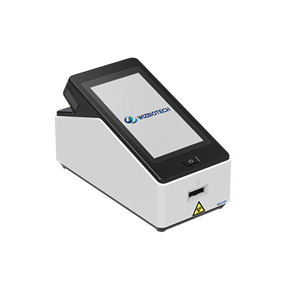HCV infection and detection
Hepatitis C virus (HCV) belongs to the genus Hepatitis virus of the flaviviridae family and is a viral infection that affects the liver. It causes both acute (short term) and chronic (long term) illnesses that can be life-threatening. Currently, the global prevalence of HCV infection is 0.7%, with prevalence ranging from 2.9% in Eastern Europe to 2.6% in Central Asia due to geographical differences. There are six genotypes of HCV. Globally, genotype 1 accounts for 46% of HCV infections, followed by genotype 3 (22%), genotype 2 (13%), genotype 4 (13%), genotype 6 (2%), and genotype 5 (1%). In Asia, genotype 3 (39%) and genotype 1 (36%) are most prevalent.
Among the various viral hepatitis, hepatitis C is one of the more common liver diseases and one of the main causes of cirrhosis and liver cancer. Unlike hepatitis B, hepatitis C is like a silent killer, good at "camouflage", long-term latent damage to the liver, there is a "three low" phenomenon, that is, low recognition rate, low diagnosis rate, low treatment rate.

HCV is mainly transmitted through blood, sexual contact and mother-to-child transmission. At present, blood transmission is the most important mode of transmission, and the use of non-disposable syringes and needles, dental instruments without strict disinfection, endoscopy, invasive procedures and acupuncture are also important ways of percutaneous transmission. Sharing razors, toothbrushes, tattoos and earring piercings are also potential ways of transmitting HCV through blood. Like other RNA viruses, HCV genomes are highly variable, which may cause differences in molecular behavior, infectivity, clinical pathogenicity, and response to drug therapy.
Most people infected with hepatitis C virus do not have obvious specific symptoms. So most patients don't know they have hepatitis C. The onset of acute hepatitis C is relatively slow, can have a lack of appetite, nausea, vomiting and other symptoms, the degree is relatively light, a few will appear fever, as well as the skin and the white of the eye (sclera) yellow, urine color deepened jaundice symptoms. Chronic hepatitis C symptoms are not obvious, and there may be no characteristic symptoms, such as fatigue, jaundice and so on. General symptoms develop slowly and may be detected during blood donation or physical examination.Currently, there is no vaccine for hepatitis C, but it can be treated with antiviral drugs. Therefore, early detection and treatment can prevent serious liver damage and improve long-term health.
At present, the biggest problem of hepatitis C is the research progress of hepatitis C drugs. To achieve the goal of reducing the number of new hepatitis C infections by 90% by 2030, treating more than 80%, and reducing the number of deaths by 65%, the task is still very difficult, and the early screening and early diagnosis of hepatitis C is urgent.
HCV antibody detection technology is the earliest, research and application of the longest HCV detection technology. Since 1978, when Shirachi et al first reported the use of two-way immunodiffusion, Hepatitis C virus-specific antigens and antibodies have been found in the serum of patients with post-transfusion hepatitis at the acute and convalescent stages, and then many scholars have used radioimmunity (RIA) and enzyme-linked immunity (ELISA) methods to find specific hepatitis C virus antigens and antibodies.
HCV antibody detection technology after more than ten years of continuous attempts to improve the effective detection methods, and further evolved ELISA, double antigen sandwich, recombinant Western blot (RIBA), protein chip detection, indirect enzyme-linked immunosorbent assay, immunochromatography and now the mainstream chemiluminescence method and other detection methods.
HCV antibody testing is suitable for high-risk population screening and can also be used for primary screening of HCV infected people. HCV antibodies are produced by the body's immune cells in response to HCV infection. Antibodies circulate in the blood and are often detected. Hepatitis C antibodies do not have any protective effect on the body, and a positive hepatitis C antibody does not necessarily mean that you have hepatitis C. Whether you have hepatitis C is determined by the presence of hepatitis C virus in the blood, so HCV antibodies are the main indicator of whether you have been infected with HCV.

WIZ has independently developed the hepatitis C virus antibody assay kit (fluorescent immunochromatography), which can quickly and accurately detect HCV antibodies in the blood, helping doctors to conduct preliminary screening and diagnosis of patients, and take appropriate treatment measures in time. The kit has the advantages of simple operation, reliable results, high sensitivity and high specificity, and is one of the commonly used detection tools in clinical practice. Through timely detection of HCV antibodies, the transmission of hepatitis C can be effectively prevented and controlled, and people's health can be guaranteed.
Welcome the hospital purchasing department and related institutions to consult and place orders, we will provide the best quality medical services for your hospital to provide better support and help. We look forward to working with you.




